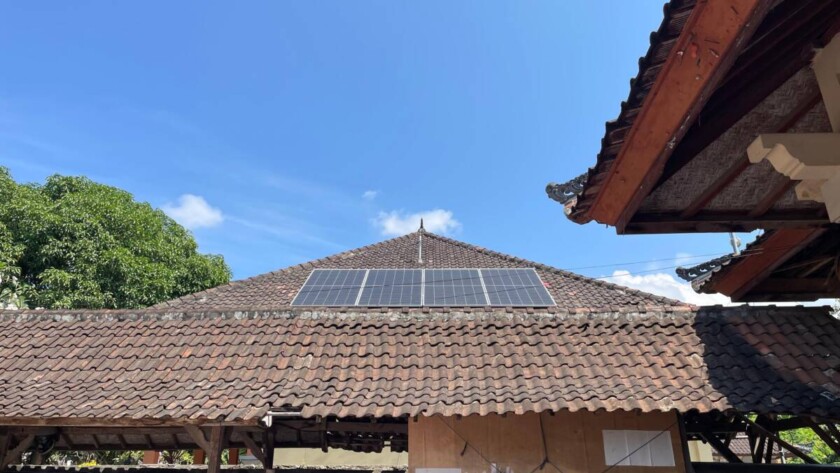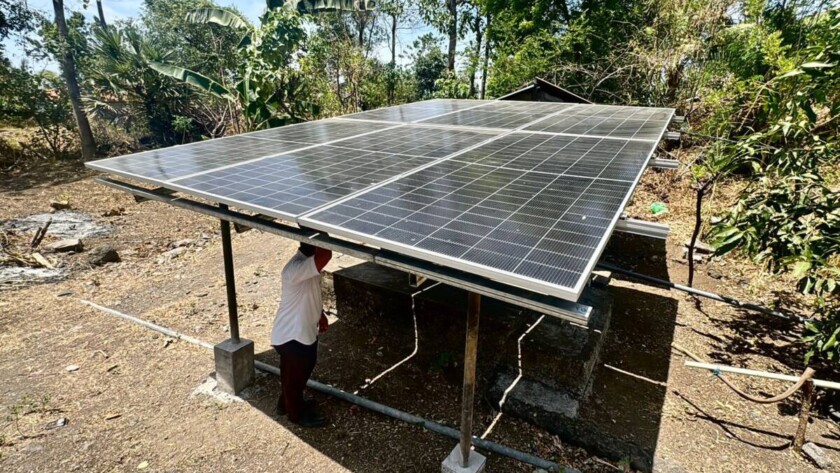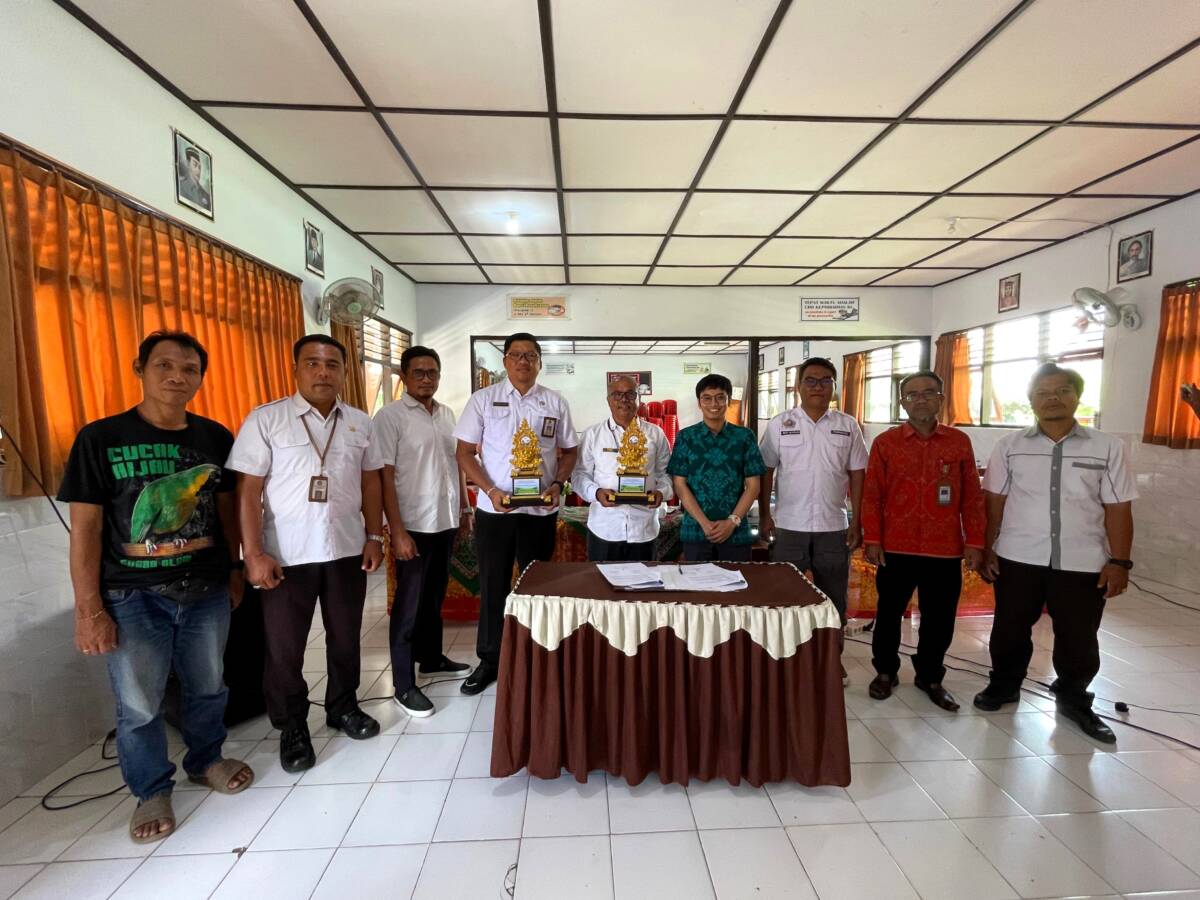Denpasar, August 27, 2025 – Under the warm sunshine, the Institute for Essential Service Reform (IESR) and the Bali Provincial Government simultaneously inaugurated the installation of Solar Power Plants (PLTS) in three villages on Wednesday (August 27th) with a total capacity of 15.37 kWp. The installations are located in Banjarasem Village, Buleleng Regency; Baturinggit Village, Karangasem Regency; and Batununggul Village, Nusa Penida District.
IESR Chief Executive Officer (CEO), Fabby Tumiwa, stated that the inauguration of this solar power plant is the first step towards achieving net-zero emissions (NZE) in Bali by 2045. The Bali NZE 2045 initiative was launched in 2023 by the Bali Provincial Government and a civil society coalition, through the Bali Net Zero Emissions 2045 Coalition movement.
Fabby stated in his remarks that the four solar power plants installed by IESR were made possible with support from the philanthropic organization ViriyaENB. In Banjarasem Village, a 3.5 kWp solar power plant with a 4.8 kWh battery was installed. This facility is centralized in the village hall as a symbol of the use of clean energy for community activities. In Baturinggit Village, a solar power plant with a similar capacity is used as a community water pump, providing residents with access to clean water. Meanwhile, in Nusa Penida District, IESR is installing a 5.95 kWp solar power plant at the district office to support public administration services, and a 2.46 kWp solar power plant at Batununggul 1 Elementary School to support educational activities.
“This infrastructure demonstrates that solar energy is not just about electricity, but also has a direct impact on basic community needs, from public services and education to access to clean water,” explained Fabby.
He further explained that solar energy has many advantages.
“The source is inexhaustible, as long as the sun still shines. Solar power plant technology is increasingly efficient and inexpensive, making it more affordable for the community. Maintenance is simple, and it can even last up to 25 years. With these advantages, villages in Bali can become pioneers in the transformation from energy consumers to energy producers. If regulations permit, villages could one day even sell surplus electricity to PLN,” said Fabby.
According to Fabby, this grand vision envisions villages in Bali being energy independent by 2030. Nusa Penida aims to meet 100 percent of its electricity needs from renewable energy by 2030, while rooftops across Bali are covered in solar panels.
“To achieve this, we need government policy support, private sector investment, PLN’s role in system synchronization, and active community participation. Let’s make this momentum a turning point towards a clean, independent, and sustainable energy future in Bali,” said Fabby.
Meanwhile, the Regional Secretary (Sekda) of Bali Province, Dewa Made Indra, explained that the energy transition process is not easy. Communities must go through a long process, including recognizing, understanding, and calculating the benefits, before finally deciding to switch to renewable energy. Therefore, Indra emphasized the need for collaborative efforts to provide simple and easy-to-understand education, especially regarding the benefits and efficiency of clean energy.
“The more people who see and experience the benefits of renewable energy firsthand, the greater their interest in making the switch. Usually, after one family tries it, their neighbors will become curious and interested. From there, the use of renewable energy can expand,” Indra explained.
Indra expressed his appreciation to all parties who have pioneered the solar power plant project in the three villages.
“On behalf of the Bali Provincial Government, I express my deepest gratitude and appreciation. Hopefully, the small step we are taking today will be part of a long journey towards the energy transition from conventional to renewable energy in Indonesia,” said Indra.
 (Solar panels in Batununggul Village, Nusa Penida District)
(Solar panels in Batununggul Village, Nusa Penida District)
 (Solar panels in Baturinggit Village, Karangasem Regency)
(Solar panels in Baturinggit Village, Karangasem Regency)
Solar Power Plant, Solar Power Plant, Bali, Net Zero Emission, NZE 2045, IESR, Bali Provincial Government, energy transition, renewable energy, energy conservation, ViriyaENB, solar energy, decarbonization, green jobs, access to clean water.

